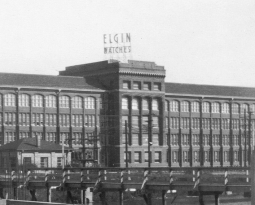Work Matters – 365+ Days a Year
This was the Labor Day 2003 Editorial in The Oregonian. I’ve always liked it. It’s nice to see many things have changed for the better since then, even if the waters remain choppy for too many.
Happy Labor Day 2016!
09/01/03
by Kristin Wolff
“Weekends, brought to you by America’s labor organizers and unions.”
That’s right. Weekends, made possible by the 40-hour work week, are a product of 19th-century Americans organizing for better working conditions and the right to time off. And the first weekend in September includes an extra Monday in honor of all workers – Labor Day. The first Monday in September may be the least understood holiday of the year.
To most people, it signals the end of summer, the beginning of the school year and suggests that white shoes be returned to storage. It ushers in fall, football and apple season. The day off provides an opportunity for time out, time in or time away. It is marked by picnics and barbecues and, increasingly, department store sales. And it provides a welcome (if brief) respite from the usual Sunday night flurry in preparation for the week ahead.
But Labor Day almost never generates reflection on its meaning among those enjoying the holiday. It should.
Labor Day asks us to reflect on something we all have in common and collectively value: work (even if unpaid, as much work is).
It recognizes the efforts of our forefathers and mothers to ensure that our workplaces are cleaner, safer and more equitable than were theirs. While their many legacies – health and retirement benefits and unemployment insurance among them – are often taken for granted by today’s workers, a brief conversation with octogenarians about their early work experiences provides an obvious, if uncomfortable, reminder of the sacrifices made by previous generations for the benefit of ours. My great-grandmother, like many others, worked and lived at the Elgin National Watch Factory in Elgin, Ill. During her tenure, the first watch company building with a fire exit was constructed.
Incidentally, in 1887, Oregon was the first state in the union to recognize Labor Day as a legal holiday. Colorado, Massachusetts, New Jersey and New York followed. By 1894, when Congress enacted federal legislation, 23 states had already declared a Labor Day holiday honoring working people and their families. Better late than never.
Many people today do not think of themselves as “workers” and do not readily associate with the “Labor” part of Labor Day. Yet, it is precisely work – and the economic security and personal fulfillment we seek through work – that is at the forefront of our minds, hearts and pocketbooks as we navigate through the choppy waters of the economy. Half of us are preoccupied by the fear of losing our jobs. Immigrants among us are more optimistic – about their prospects as well as their children’s. And at least 8 percent of us (in Oregon) wish we had work to go to.
Reflecting on our labor past may help us find creative ways to make our futures work. As you enjoy your Labor Day holiday, remind your kids, nephews, nieces, siblings and spouses why you have the day off (or why so many others do). You might also try the following:
• After purchasing your morning brew, deposit the extra change in the tip jar and wish your barista a good day.
• As you purchase last-minute picnic supplies from the supermarket, thank the cashier and mean it.
• When you fill your gas tank on your way home from your weekend trip, smile at the attendant in genuine appreciation.
• Identify three ways to improve your own workplace, and on Tuesday, do one of them. Repeat as necessary the other 364 days of the year.
And thank your great-grandmother.
Kristin Wolff is a writer and analyst (and worker). She co-founded thinkers + doers, llc,in Portland and can be reached at kwolff@thinkers-and-doers.com.






